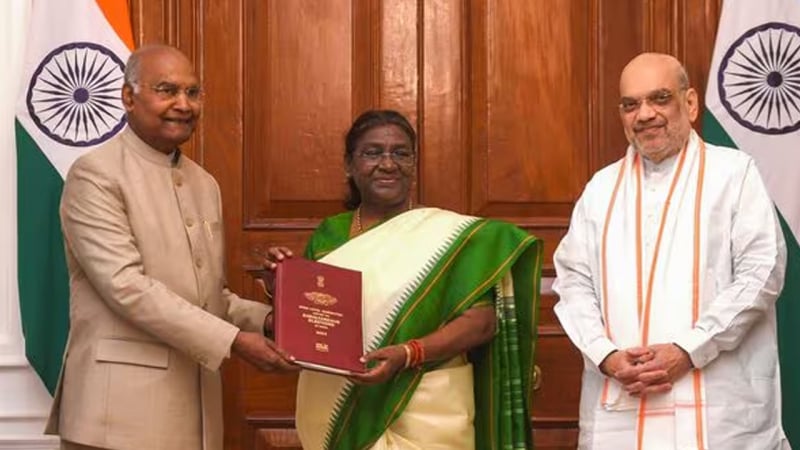
The Bharatiya Janata Party contested the Lok Sabha elections on an all-India basis for the first time in 1984 and in the same year demanded that there should be a system for holding simultaneous elections across the country.
Moving ahead with the 'One Nation, One Election' plan, the government on Wednesday constituted a high-level committee to hold elections to Lok Sabha, state assemblies and local bodies in a phased manner after a nationwide consensus building exercise. The recommendations were accepted. The government says that many political parties have already agreed on the issue. He said that due to the widespread support of the people of the country on this issue, even the parties which were against it till now may feel pressure to change their stand. There has been a lot of discussion about this issue recently, but do you know that the BJP has been raising this issue for the last 40 years?
BJP has been demanding one country, one election since 1984
Although the Bharatiya Janata Party has been repeating the demand of 'one nation, one election' for the last few years, it has been on the party's agenda since 1984. Since 2014, Prime Minister Narendra Modi has also been constantly talking about the benefits of 'one country, one election'. Let us tell you that the party contested the Lok Sabha elections on an all-India level for the first time in 1984 and in its manifesto demanded simultaneous elections across the country along with electronic voting machines. The party said that all these measures are very important for electoral reforms and healthy democracy.
BJP presented an 11-point blueprint for electoral reforms
Four years after its formation, the BJP fielded 224 candidates in the 1984 elections. The BJP manifesto promises to curb four 'evils' – money power, political power, media power and muscle power – that are the main threats to the 'freedom and fairness of elections' and offers an 11-point blueprint for electoral reforms.
Give the right to vote to everyone over the age of 18
- Present voter ID card
- Use electronic voting machines and change laws as needed
- Examine the possibility of introducing voter list system
- Give the right of postal ballot to Indian citizens living abroad
- Hold state and central elections together every five years
- Make the Election Commission a multi-member body, strengthen its independence by charging its expenses from the Consolidated Fund of India and providing it with an independent, minimum infrastructure.
- The mandate of the Election Commission should be extended to local self-government elections and ensure that elections to local bodies are held regularly.
- Public financing of elections should be regulated, as in Germany, Japan and most other democracies.
- There should be a public audit of the accounts of the parties.
- The code of conduct framed by the Election Commission must be legal to prevent the abuse of government power by the ruling party; violation of the code of conduct will be treated as corrupt practice under the law.
- Most of the promises made by the BJP led by Atal Bihari Vajpayee were later adopted into the electoral system. However, in 1984, the Congress won a record 414 seats while the BJP got just 2 seats.
From 1989 to 2019, BJP demanded election reforms
Let us tell you that after the 1984, 1989 and subsequent elections, the BJP kept demanding different electoral reforms. In 1989, the party demanded compulsory voting and a ban on corporate donations, while in 1991 and 1996 it changed its stand on corporate funding. In the 1998 and 1999 elections, the party talked about the Election Reform Bill and a fixed tenure of 5 years, while in 2004 and 2009 it reiterated the promises of 1984. In 2014, the party demanded the exclusion of criminals from elections and a re-evaluation of the limit on election expenses. In 2019, the party demanded that all elections be held simultaneously and there should be a single voter list.
 look news india
look news india